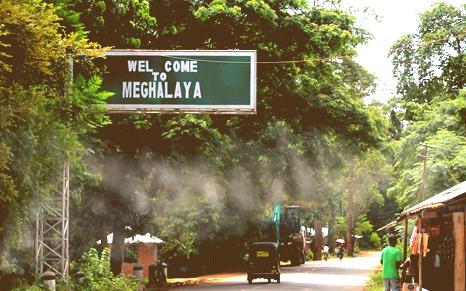In a landmark decision taken by the Central and State governments working in tandem, the Government has repealed the Armed Forces (Special Powers) Acts completely from Meghalaya and in parts from Arunachal Pradesh. The citizens of both the states welcomed the decision to remove AFSPA. This victory of democracy has been made possible by the efforts of the Bharatiya Janata Party alone. The BJP had decided to repeal AFSPA ever since it came to power in the Centre. Now with BJP leadership at the state level in both Meghalaya and Arunachal Pradesh, the process to repeal the act became easier. Kiren Rijiju Home Minister of India tweeted that the repeal had become possible due to the “improvement of security scenario in the North-East in the last 4 years.”
The revocation of the Armed Forces (Special Powers) Act by Home Ministry from Assam, Meghalaya & most areas of Arunachal Pradesh is due to significant improvement of security scenario in North-East India in last 4 years.
— Kiren Rijiju (मोदी का परिवार) (@KirenRijiju) April 23, 2018
AFSPA is an Act of Parliament which gives special powers to the Indian Armed Forces in the “disturbed areas”. The AFSPA provides immunity and empowers Armed forces to conduct operations and arrest people without any prior notice. This Act has often been criticized by the public of AFSPA-provisioned states as it disturbs the daily life of the civilians. The interference of Armed Forces is not welcomed by anyone living in the area.
It was necessary to impose the AFSPA in 1991 in order to stop the inflow of insurgents from Assam. The Assam based outfits like the United Liberation Front of Assam had waged a war against the Indian government and civilians in Assam demanding a sovereign, independent Assam for the Indigenous Assamese people. The Indian government had classified ULFA as a terrorist organization and banned it in 1990. The government further launched military offensive against ULFA which had led to disturbance in the neighbouring states of Assam. Nagaland, Tripura, Manipur, Meghalaya, Arunachal Pradesh and Mizoram have all been ruled under AFSPA in the past. Mizoram was the first to be free from the clutches of this law, and Tripura followed suit in 2015.
BJP and its North East Democratic Alliance partner, National People’s Party (NPP), led by Conrad Sangma are in power in Meghalaya. While Arunachal Pradesh is ruled by Pema Khandu who joined BJP just a few years back. The Narendra Modi led Central Government of the BJP got the perfect chance to carry out their promises made before the elections. Insurgency-related incidents were down by more than 80% in the two states, and there was no need to uphold a law which had lost its use.
The pleasant decision to repeal AFSPA came to the people of Meghalaya and Arunachal earlier this month. From the 1st of April 2018, AFSPA is no longer applicable in Meghalaya while it will continue to be in effect in three districts and eight police stations in Arunachal Pradesh, down from sixteen districts. The people from Meghalaya and Arunachal will breathe a sigh of relief as they will now be able to indulge in their daily activities without any fear of an unnecessary clampdown.
The repealing of AFSPA shows the commitment of PM Modi and the BJP-led Central Government to provide better governance and freedom to its citizens. The citizens have wholeheartedly welcomed the Centre’s decision to reinstate democratic rights in the state. This move by the Centre will also give hope to the states of Assam, Nagaland and Manipur, for their turn to overthrow AFSPA might come soon. The security situations in all the North-Eastern states have drastically improved and there are high chances that all the North-Eastern states will be free from the clutches of AFSPA in the years to come. BJP in the Centre and the states will ensure that their citizens get the freedom they deserve.
























